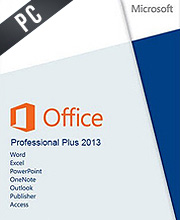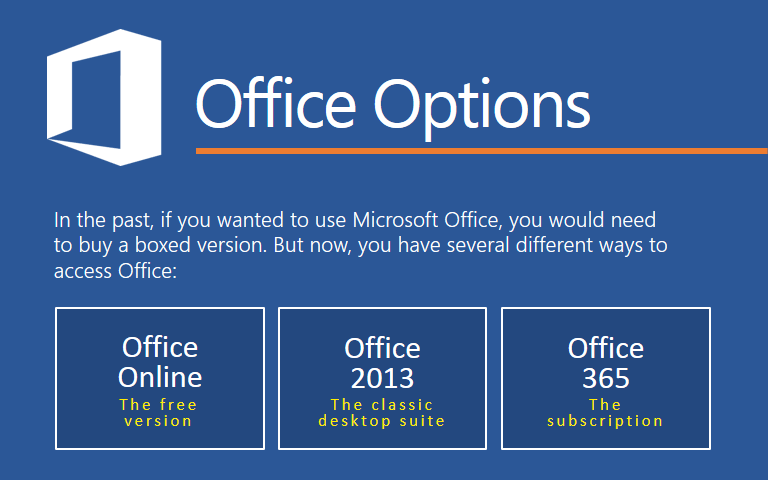

Put another way, you can get the Office 2013 desktop apps via two ways: subscribe to a new Office 365 subscription plan or buy a boxed edition of Office 2013. This plan allows Office to be used on up to five PCs or Macs (in any combination) and five mobile devices for all users in one household.
#WERE CAN I BUY MICROSOFT OFFICE 2013 SOFTWARE#
Along with the various Office 2013 box editions, the Redmond-based software and services giant has also devised four new Office 365 subscription plans, one of which being the S$138/year Office 365 Home Premium that targets households. The big change this time round is that Microsoft is hoping that most users would get Office through an Office 365 subscription, instead of going the pay-once-for-a-perpetual-licence route.

Similar to past releases, apps in the new Office 2013 suite have a year designation in their nameplates, such as Word 2013, Excel 2013, PowerPoint 2013, Outlook 2013, and so on. There’s no need to pay any subscription fees you pay once, and the licence lasts forever. On the other hand, think of Office 20XX as your traditional, locally installed desktop version of the Office suite. In addition to the cloud-based services, Office 365 subscription plans can also include a subscription to the desktop applications. It’s subscription-based, with different monthly plans based on the size of the business (that is, number of licences needed), and the number of features selected. What’s the difference between Office 365 and Office 2013?įirst announced in 2010 to mainly target businesses, the 'old' Office 365 consists of hosted, online versions of Microsoft Server products, such as SharePoint Online, Exchange Online, and Lync Online.

Hopefully after reading this, you can stop scratching your head. So what exactly is Office 365, and how is it different from Office 2013? How many editions are there, and how much do they cost? Now that Office 2013 and the new Office 365 subscription plans are available to the public, we've updated our FAQ to address these frequently asked questions and more. Inevitably, this has caused quite a bit of confusion. Surprisingly, at the time, the 'Office 2013' name wasn't brandished instead, Microsoft preferred (even till now) to call it the 'new Office', the 'next Office', or the 'modern Office'. FAQ: Microsoft Office 2013 & Office 365 FAQ: Microsoft Office 2013 & Office 365Īt a press event in July last year, Microsoft unveiled details about its next Office release.


 0 kommentar(er)
0 kommentar(er)
